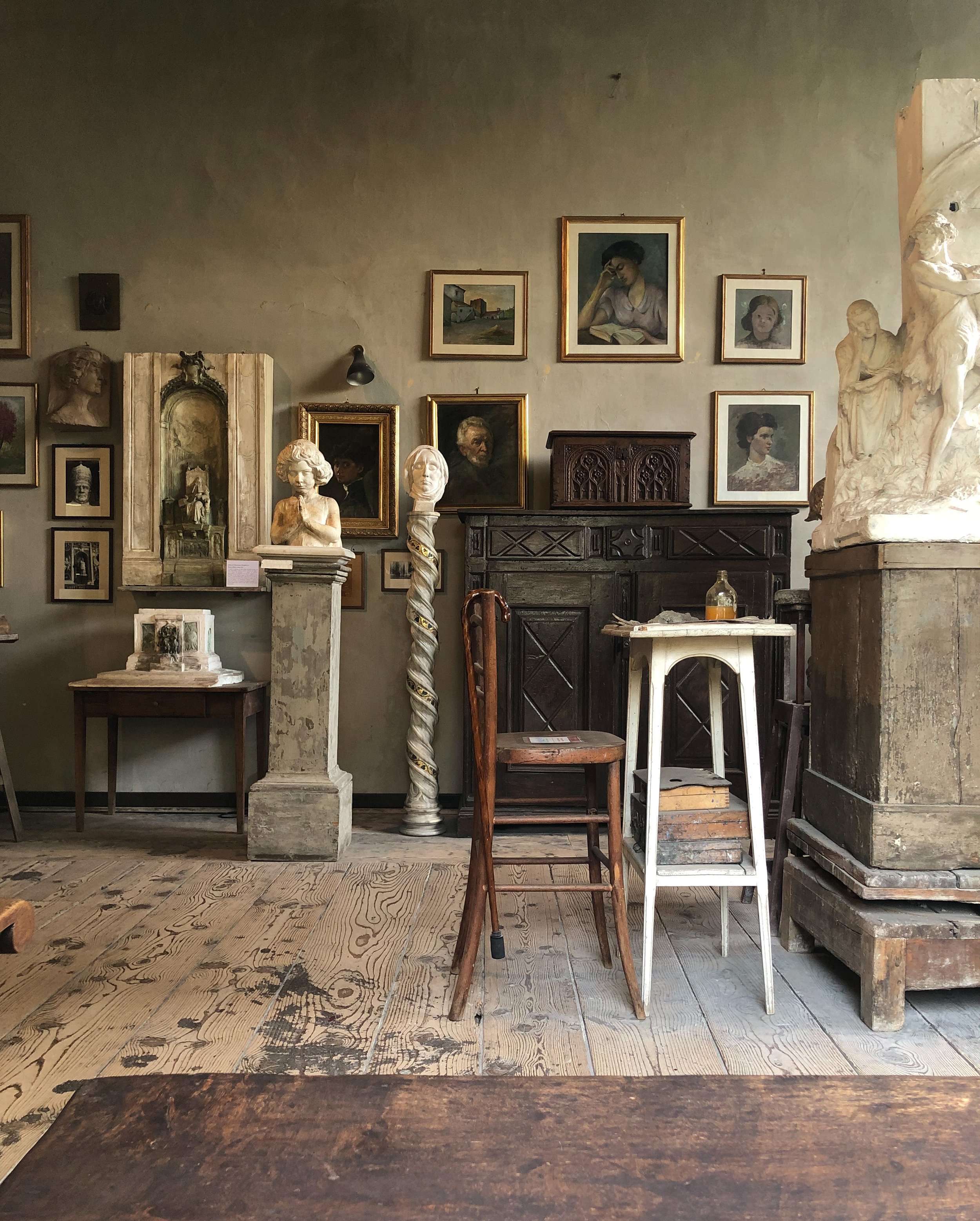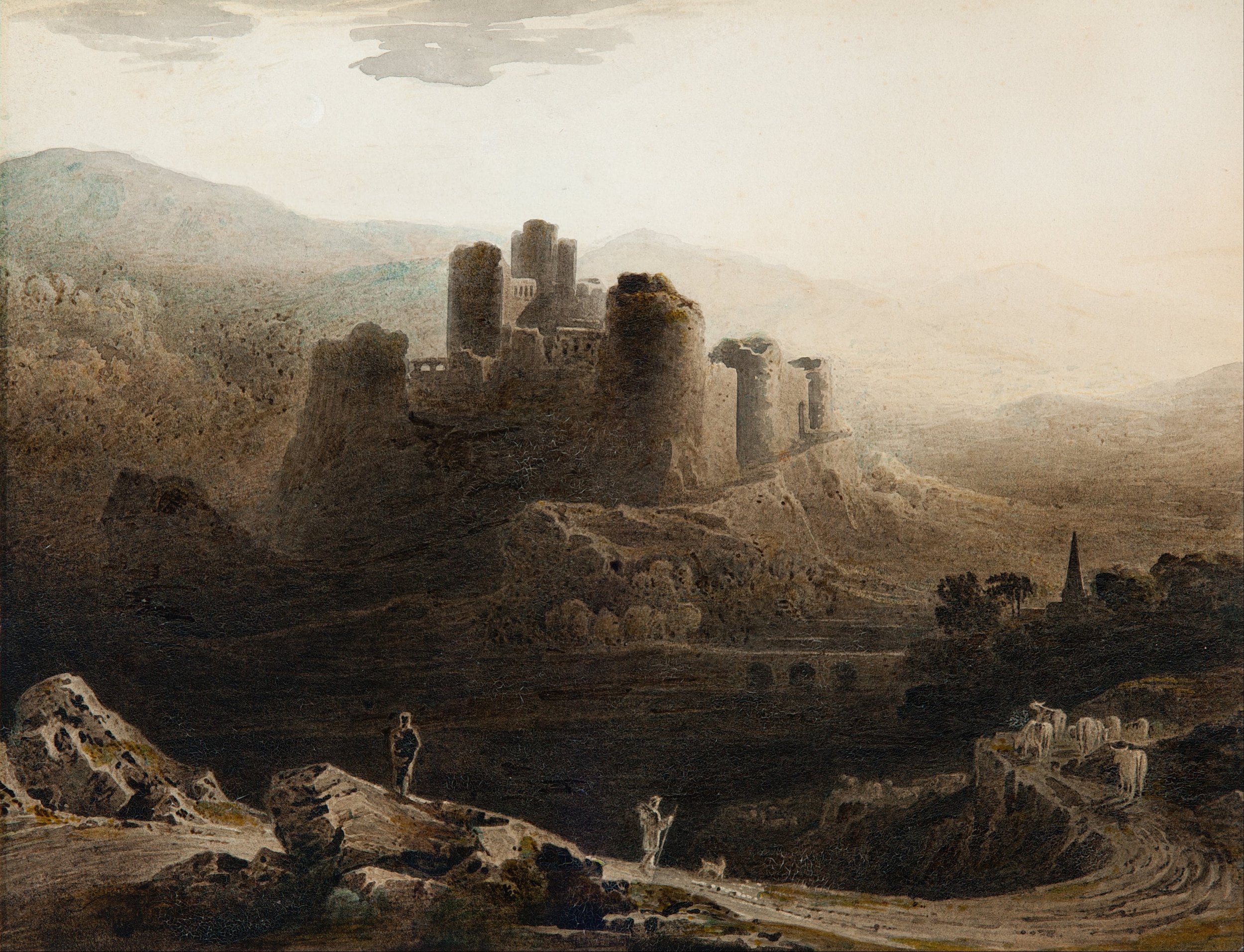On Questions & Answers

On Questions & Answers
By Jane Zwart
Q. What is your only comfort in life and in death?
A. That I am not my own, but belong with body and soul, both in life and in death, to my faithful Saviour Jesus Christ. He has fully paid for all my sins with his precious blood, and has set me free from all the power of the devil. He also preserves me in such a way that without the will of my heavenly Father not a hair can fall from my head; indeed, all things must work together for my salvation. Therefore, by his Holy Spirit he also assures me of eternal life and make me heartily willing and ready from now on to live for him.
— Lord’s Day One, Heidelberg Catechism
Be patient toward all that is unsolved in your heart and try to love the questions themselves, like locked rooms and like books that are now written in a very foreign tongue. Do not now seek the answers, which cannot be given you because you would not be able to live them. And the point is, to live everything. Live the questions now. Perhaps you will then gradually, without noticing it, live along some distant day into the answer.
— Rainer Maria Rilke, Letters to a Young Poet
*
Two decades ago, when I was a student at Calvin College, I fell in love with Rainer Maria Rilke. Smitten with Letters to a Young Poet and enamoured, too, with the notion that I was a young poet, I painstakingly copied Rilke’s injunction to “love the questions themselves.” Copying things painstakingly was my wont back then. Back then, I thought that anguish was poetic. I smirked at what had sheltered me. And I mistook spurning answers for loving the questions themselves.
Such overreactions are a staple of the bildungsroman. In adolescence, many of us demote our parents from omnipotence to folly for slender cause. We swap asperity for niceties, and repeatedly epiphanies dawn on us as if they were exactly what the teacher in Ecclesiastes says don’t exist: new things under the sun. And that’s the mild strain of the developmental stage—the version of adolescence that time is dialectic enough to cure, such that eventually one’s parents come into focus as the thoughtful, fallible people they always were and honesty no longer seems to require the blunt utterance of every truth and new realizations do not demand the toppling and recreating of worlds.
An adolescent at 18, I came down with the usual symptoms. That is, I didn’t just fall in with Rainer Maria Rilke. I didn’t just careen into love of the questions themselves. No, I also fell in line with A Catcher in the Rye’s Holden Caulfield and Winesburg, Ohio’s George Willard. I made it a point of pride that I could match them for disillusionment, not recognizing that I also matched them for illusions. I fell in line with Mrs. Dalloway’s Sally Seton, too. She beheaded “all sorts of flowers that had never been seen together” and floated them in bowls, dismaying old ladies (Woolf 33); I carried out the vivisection of my art history textbook and tucked a knobby, naked Egon Schiele and a leery Cindy Sherman into my wallet, appalling my wholesome RA. I flattered myself that Sally Seton and I had this in common: both of us knew better than to trust any art that hid what beauty costs. I read these characters as interrogating everything, and I set out to plot my own story after theirs.
Photograph by Ali Harfouche
Now that I teach these books, though, I notice things that I missed back then. For one, I notice Winesburg, Ohio’s last sentence, where George Willard regards his childhood town as “but a background on which to paint the dreams of his manhood” (Anderson 247). As a first-year student, I sighed at that line with uncritical fellow-feeling. Now, I pick up on the wry ambiguity in the phrase “the dreams of his manhood”: Is George’s manhood itself a dream, or is it sturdy enough to have a brood of dreams that belong to it? Likewise, I revisit that ambiguous construct I was trying to press my childhood into the background for: the weight of loving the questions. Did loving the questions constitute a burden, or did loving the questions carry weight?
The answer, for me, was both. Loving the questions did, sometimes, solidify into an object, its heft approximately that of a household idol. At other times, loving the questions allowed me to exact the weight of suffering more honestly than I could have otherwise. I believe the weight of loving the questions amounts to both those realities for a fair number of Calvin’s undergrads these days, too.
Which is why, looking back at my first, flagrant love for the questions themselves, I find myself tempted to generalize, claiming that my current students resemble my 18-year-old self. After all, that claim could ground the case I’d like to make for empathy as crucial to my efforts in the classroom. And that case does have its merits. Empathy does often take hold of me when I teach.
For instance, every time that I assign a core literature class excerpts from the first three books of Gulliver’s Travels, I warm to the students who warm to Swift’s satire, interrogating his narrator, Gulliver, who is every bit as naïve as his name advertises. I resonate with these students’ inquiries because I’ve questioned the text in much the same spirit (i.e., with a woe that is three-quarters amusement). I find their laughter contagious because I’ve cackled over the same scenes. Take Gulliver’s tour of an island where pompous intellectuals perform impractical—indeed, purposeless—experiments. He counts these eggheads great prodigies, whereas those of us whom Swift has in stitches have a long enough acquaintance with such posturers, such professors not to be overawed. In its earliest stages, then, my empathy with these students might draw on nothing more than shared mirth, or, to put a finer point on it, self-congratulatory camaraderie. We chuckle together because Gulliver questions nothing, and because we would interrogate all of it: the Lilliputians’ tidy provincialism and the Brobdignagians’ crass hospitality, not to mention the scholar, head in clouds, smelling of the excrement he intends to convert back into food, but equally ripe with vanity.
Collective smugness is not, however, empathy at its best, which is why I would not bother assigning Gulliver’s Travels were it not for its fourth book, which numbers among literature’s great chastening fictions. In Book Four, Gulliver apprentices himself to a race of horses whose whole calculus is reason. And from this utterly disinterested species, he learns cynicism, forswearing his earlier wonderment at human things. On his eventual return to England, in fact, he classes his wife, his children, and his neighbours as mere “Yahoos,” aspiring only to find them tolerable. Indeed, Gulliver has moved from incredulity without discernment to incredulity without charity. He loves only the questions now.
Well, by this time, my students have quit laughing, and I know, from experience, that some of them are indicting themselves for having been as disdainful as this caricature of Swift’s. Some of them are sounding themselves for the habit of merciless inquisition, some even for the idolatry of loving only the questions (which Gulliver’s Travels hints is a greater transgression even than the unquestioning adoration for silly things). I warm to them at this juncture, too. After all, I’ve arraigned myself over the same wrongs, and in part thanks to this same book. And that commonality between us permits me to teach from a place of empathy.
So I tell my students what Gulliver’s Travels has taught me. Reading this fiction, I say, helped me to understand that cynicism isn’t the opposite of naïveté. It is, in fact, a form of naïveté—but one we’re a little quicker to find attractive than goofy credulity is, because this version comes with an angsty sense of superiority attached. But that sense of superiority is still folly, at bottom, and it moves a cynical Gulliver, for instance, to assume that any question he cannot answer must not have an answer; consequently, he can see no further than the worth of his questions. To be fair, he does pose some worthy questions. Gulliver asks why, when they make us so backward, we love our vices. He asks, more broadly, what justifies the irrationality of love. And, in truth, Gulliver’s problem is not that he cannot answer these queries. The problem is that he takes the limits of what he can fathom as absolute. I think we do the same thing in our own moments or seasons of cynicism, I conclude, and I think when we assume the questions we cannot answer have no answers, we are already courting idolatry—for by then we’ve ruled out the mind of God, the heart of God.
I’m willing to admit that teaching Gulliver’s Travels—and probably a good many other texts—I can pivot into the mode of the sermon, even into confession. But that is what teaching from a place of empathy requires of me: seeing the provisions that a student needs because you’ve had to collect the same equipment and, in turn, lending them what you have ready to hand. And to equip my students with such truths, to reach them via empathy, is a great part of my vocation.
Even so, the truth is that my empathy for these students who feel a bit like kin—it’s not enough. Empathy does, after all, hinge on familiarity, and only sometimes am I able to trace the kinship between my story and my students’ stories. Indeed, for every student overreacting to their upbringing in the direction of idolizing the questions, as I once did, is another who fears the questions. Which means that to rely solely on empathy as a means of reaching my students is less than my vocation requires. Put otherwise: to depend just on empathy in the classroom would be to generalize, to teach from a false premise.
Part of my vocation, then, has been learning a wider compassion—compassion, for instance, for the student who bristled on reading Emily Dickinson’s poem “This World is not Conclusion.” The lines she objected to were these:
“Faith slips — and laughs, and rallies — Blushes, if any see —
Plucks at a twig of Evidence — And asks a Vane, the way —” (183)
Now, admittedly, part of the trouble stemmed from a misreading of the poem. My student took these lines as pointing to an infirm faith (it slips), a less than serious faith (it laughs when it slips), a faith embarrassed of itself (it blushes). My empathy never balks at a student’s misreading of a poem, though; I know I’ve done the same. Still, I cannot empathize with an experience of faith exempt from slipping. Doubt has, at times, left me far from surefooted, and I’ve also crossed at least one stretch of icy nonchalance. Nor can I empathize with a faith that has no laughter in it.
Finding myself unable to conjure up empathy for this student’s experience of faith, however, does not mean that I cannot, by the grace of God, summon compassion for her. And I did. I pointed her, gently, to word “rallies” in the poem, and asked her what she thought it meant. “Does it mean Faith gets its balance back?” she ventured. “I think it does,” I said, and then I asked, “And if it gets its balance back, then what is it blushing about?” She paused. “Its clumsiness,” she answered. And from there, I could go on.
I could grant that different varieties of clumsiness enter into our experiences of faith.
More importantly still, I could point to the fact that the poem suggests that whatever our particular clumsiness, there are provisions enough and providence enough to let us rally, to give us our balance back.
Photograph by Daniel Bultedaob
But Dickinson calls those provisions a “twig of Evidence” and “a Vane,” and I couldn’t help noticing that as I read out the next two lines, this student who objected to an infirm faith reknit her brow. “I bet,” I said, “some of us don’t like the idea that it’s only a ‘twig of Evidence.’ Why not a whole branch? Why not a whole tree? A whole forest?” The young woman nodded vigorously. And another student piped up, “Is that ‘Vane’ a weather vane?” “It is,” I said, and he suggested that this is a problem, too, since a weather vane turns at the wind’s whim, meaning that it has none of the steady guidance of, say, a compass, which is, he asserted, what we need in our faith.
Right, I replied. So if we read this line about the weather vane as arguing there’s no clear route to God’s presence or the line about the twig as claiming there’s not much evidence for God’s existence, those of us who are Christians have good reason to dispute this poem. But I suspect, I continued, that what Dickinson wants us to realize is that the world is so full of God’s glory that even a twig--not only a twig, even a twig--testifies to his creativity. As for the weather vane, you’re right that it’s not reliable if you’re using it in place of a compass, if you know what direction to go already. But I think that the poem is making the point that even if you come with more questions than anything else, God’s providence is enough that you could strike out in any direction and find him. So it’s not that there’s no clear route into God’s presence; it’s that there’s every clear route to his presence. And I do love that, I say.
Maybe these two students (and a fair number of others) still don’t exit the classroom loving these lines. Maybe, too, we—they and I—have halted, in understanding each other, some distance from empathy. But maybe, maybe Dickinson’s little allegory of clumsy Faith, long on questions, will come back to these students when they need it. I hope so.
Indeed, I hope I have lent them, no less than the students for whom I find ready empathy, some equipage for living in the contested space between questions and answers. Because every semester I watch my students navigating this very space, checking the cords that bind them to Christian belief, sometimes to test their slack and sometimes to be sure of their knots. And here is what I want to tell them: Dear people, “Be patient toward all that is unsolved in your heart and try to love the questions.” Be patient and love the questions, I want to tell them, because it is an answer we live inevitably exceeds any words we try to fit to it.
Jane Zwart
Professor & Co-Director, Calvin Center for Faith & Writing
Jane Zwart’s work has appeared in Poetry Magazine, Boston Review, and Image Journal.
Photography by James Alty






